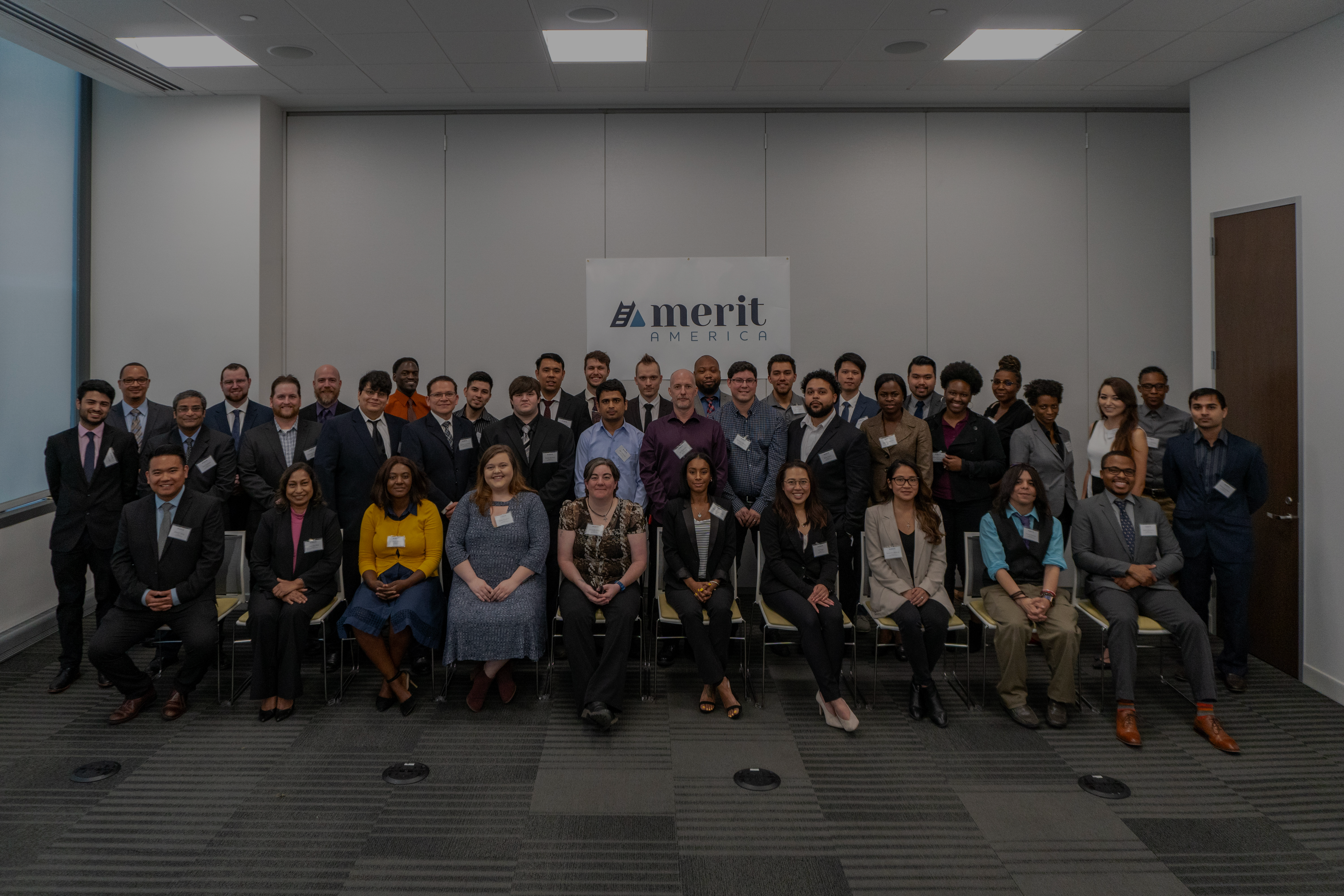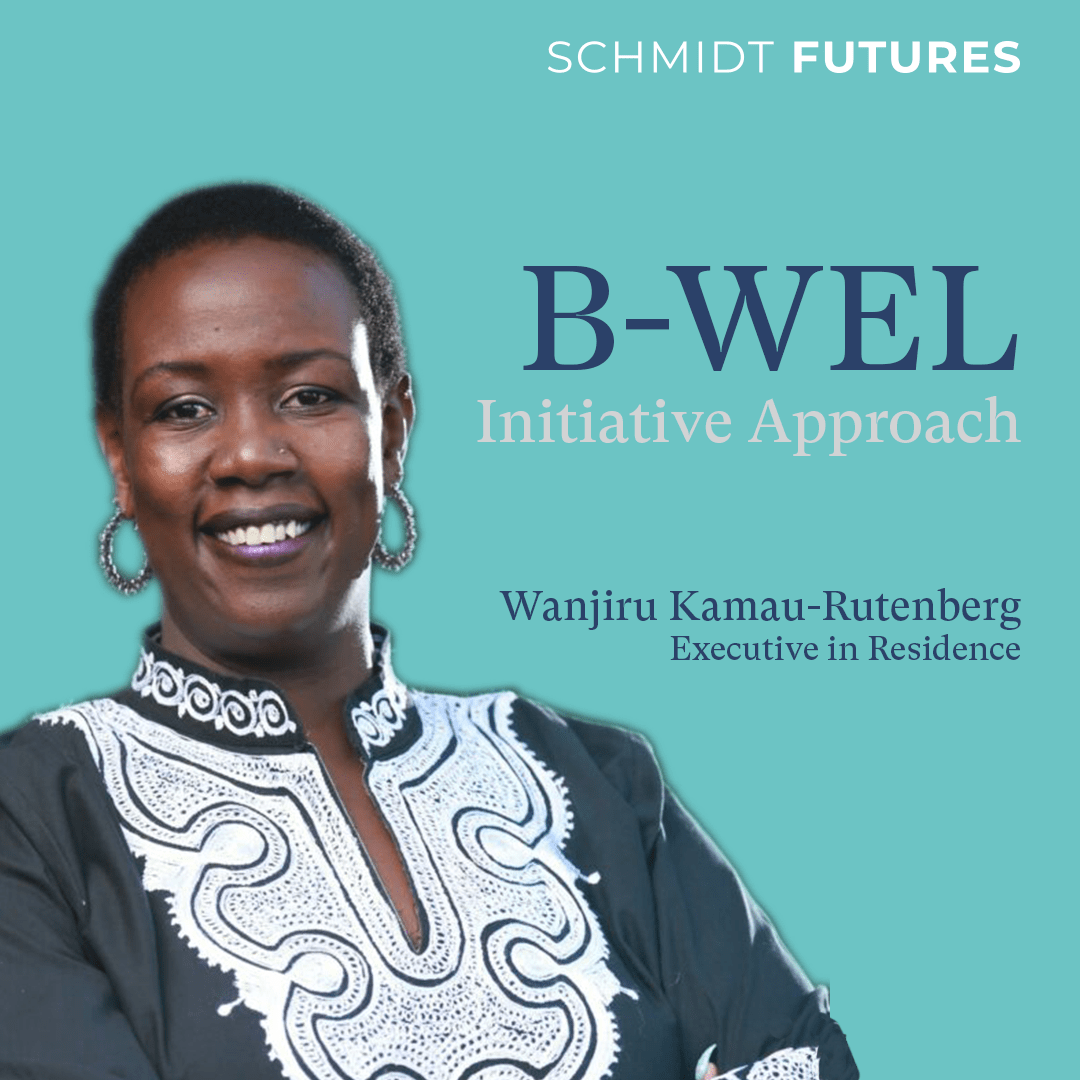

Grantees Using Technology to Advance Equity
“Zeros and ones, if we are not careful, could deepen the divides between haves and have-nots, between the deserving and the undeserving – rusty value judgments embedded in shiny new systems.”
In just the past year, advancements in technology –– especially in the arena of advanced computing –– have simultaneously captured our imagination and sparked valid concerns about their potential to mirror and scale the biases that have plagued our society for generations. Although federal regulations on the applications of AI may be soon on the way, we face a crucial inflection point in guiding the impact that these tools may have on society. The intensity with which corporations and startups are fighting for competitive advantages in tech-driven markets creates the risk of sacrificing ethical standards and the prioritization of increasing societal equity. However, we are also seeing a migration of technologists who seek to apply their technical talent towards initiatives that aim to improve equitable outcomes in science and society.
Now more than ever, we must focus on emboldening initiatives that use technology and education to bridge the equity gap. As a philanthropic organization that emphasizes the power of tech-for good and the importance of engineering possibility, Schmidt Futures believes in a future where technology prevails as a vehicle to scale fairness and opportunity rather than amplify bias and prejudice. We’re proud to have supported the following organizations and communities that are doing promising work in this vein, especially in the areas of education, finance, prison reform and professional leadership.


Reforming the Criminal Justice System Through Data Driven Solutions
Photo credit: Stand Together
Despite the fact that our incarcerated population has increased by 500% since 1970 and costs $182 billion per year, mass incarceration has done very little to enhance public safety or reduce crime, and communities of color are disproportionately swept up in the criminal justice system. Once inside, hundreds of thousands of people are “stuck” in U.S. prisons –– despite being eligible for release –– due to outdated systems working with fragmented data.
Enter Recidiviz, a team of technologists committed to getting decision makers — from legislators and corrections leaders to individual probation and parole officers — the data they need to drive better criminal justice outcomes.
Using modern data infrastructure and human-centered product design, Recidiviz has been able to safely reduce incarceration and improve outcomes for those most impacted by our flawed justice system. Since just 2017, the organization has cultivated partnerships with 11 states, reaching 25% of all incarcerated people in the U.S. Working side by side with justice-impacted communities, reform advocates, and criminal justice practitioners, Recidiviz has helped over 70,000 people out of the criminal justice system while saving states over $1B –– an estimated cost savings of the impact of reducing the number of people in prison and on supervision.
“Our elected officials and community leaders need accurate, real-time data to bring about a more equitable society. But right now, they don’t have it. The only data that government agencies have comes from legacy technology systems dating back decades. These old-school mainframes are fragmented, labor-intensive, and error-prone. The implications are huge: few of the reforms that legislatures and advocates have fought to pass will have their promised impact until we fix these systems.” – Josh Gordon, Communications Director, Recidiviz


Education That Leads to Opportunity
The ability to access the “American Dream” falls across racial and class lines. Continued disinvestment in low-income neighborhoods – often neighborhoods of color – perpetuates the physical and financial barriers to accessing and completing higher education, and subsequently, to economic mobility.
Today, there is also a broken link between entry-level jobs and family-sustaining careers. The jobs that historically did not require a 4-year degree – and that previous generations relied on to build wealth and establish their families – have dwindled and narrowed, leaving expensive college degrees as seemingly the only pathway forward. But this path is largely inaccessible for those who can’t afford the increasing price tag of higher education, have inflexible responsibilities, or need to work full-time to maintain stability.
As Merit America sees it, creating a more equitable society requires opportunities for education and economic mobility to be evenly distributed, breaking down the barriers resulting from decades of systemic racism and discrimination. In service of this vision, the organization leverages technology and a low-cost, remote-based learning approach to serve those whom the system has failed. They provide training from industry-recognized partners to prepare working adults to start careers in IT Support, Java Development, and Data Analytics.
To date, Merit America has served more than 5,300 learners across the U.S., driving an average annual wage gain of $19,000 for those who complete the program. Because of whom the system has failed, Merit America’s learners are more likely to be people of color – 78% of the program’s learners identify as BIPOC. Over 80% of learners graduate from the program, and 67% of job-seeking graduates secure a new role within 6 months.
As Merit America continues to scale their mission nationwide, their goal is to make opportunity for economic mobility accessible to the 53 million Americans stuck in low-wage work and drive $1B in transformative family-sustaining wage gains by 2024.
Erasing Bias in Financial Decision Making
AI can be a source for financial equity, but we must continually work to remove human bias and racism from systems such as those that determine whether a person should get a loan or not.
By using AI-driven lending models, Zest AI is helping community development financial institutions (CDFIs) across the country extend credit to marginalized communities that are traditionally unbanked or underbanked. They’ve also developed algorithms to help loan regulators detect the race of loan applicants and better identify when financial institutions may be using discriminatory behaviors to screen out certain candidates.
Zest AI is able to accurately assess and score 98% of American borrower profiles, as well as 90% of “unscorable” profiles (profiles that have a very thin credit history). Because of the success of their scoring algorithm, Zest AI has enabled a 25% lift in loan approvals for financial institutions, with 80% of those approvals being auto-decided. More importantly, Zest AI has increased loan approvals by 40% across protected classes (and 41% for Black Americans).
“A more equitable society is one where everyone has access to fair and inclusive credit. Money is at the core of how our society works and everyone deserves a fair shot at the capital they need to make a better life for themselves.” ––


Nurturing the Growth of Black Women Executives
Recent studies show that Black women are still dramatically underrepresented in corporate America and beyond. This is especially true in senior leadership. According to the 2022 report “Women in the Workplace,” only 1 in 20 C-suite executives is a WoC, and for every 100 men, only 82 WoC are promoted from entry-level to manager. When looking at the EU, the Center for Intersectional Justice highlights that 91% of WoC are overqualified in their jobs, compared to 48% of white women. These harsh and well-documented realities not only pose a severe moral and ethical problem but also have huge economic consequences: In the U.S. alone, S&P Global estimates a loss of $107 billion in economic activities from 1960 – 2019 due to unequal educational opportunities of Black and white women.
Black Women in Executive Leadership (B-WEL) is a new global initiative focused on improving representation, experiences, and the impact of Black women’s leadership in society. The Initiative, through its flagship B-WEL Fellowship, will identify Black women executives from across sectors globally who have demonstrated a track record of impact.
B-WEL will then support these women’s individual leadership journeys, connect them to each other, and to resources needed so that they can address society’s most pressing problems, especially those that disproportionately affect Black women.
-
Black Women in Executive Leadership: Inspiration Behind the Initiative
Schmidt Futures Executive in Residence Wanjiru Kamau-Rutenberg explains how the idea for B-WEL stems from Schmidt Futures’ mission to improve the market for talent.
-
Black Women in Executive Leadership: The B-WEL Approach
“We need to collect, collate & curate the leadership lessons of so many Black women who deliver outsized impact while navigating the horrific intersection of racism and patriarchy. They have a lot to teach us about the art, craft, and science of leadership.” — – Wanjiru Kamau-Rutenberg
Breaking Down Barriers to Prison Education
According to a recent BJS report, of the more than 50,000 people released from federal prisons in 2010, a shocking 33% found no employment at all over 4 years post-release (and at any given time, no more than 40% of the cohort was employed).
Access to higher education for incarcerated individuals is critical in reducing recidivism and improving post-release outcomes, yet the idea that those who are incarcerated deserve to be punished and deprived of resources fuels a high recidivism rate (55% within 3 years) across the country. Incarcerated individuals who participate in post-secondary education programs are 43% less likely to recidivate, and every dollar invested in post-secondary prison education saves the public $4-5 in decarceration savings.
Ameelio –– a technology non-profit –– builds software to battle mass incarceration by addressing existing barriers to education and employment both during incarceration and post release. Through their platform, Ameelio aims to increase students’ ability to enroll and participate in Pell Grant funded programs, which in turn alleviates challenges to continuity in learning and pursuing professional certifications. Ultimately, the platform empowers individuals to chart a path toward successful reintegration into society by enabling them to visualize an alternative future for themselves.
So far, Ameelio has signed contracts with 5 state prison systems, serving 35 prisons and 32,000 incarcerated people. Their virtual communication calling platform Connect –– the nation’s first free prison communication platform –– is currently scaling three state prison systems (Iowa, Colorado, Maine), saving users a combined $750,000. Ameelio’s first product, Letters, has over 1.1 million users and has sent over 2 million mail pieces across all 50 states and every single correctional facility in the country.


